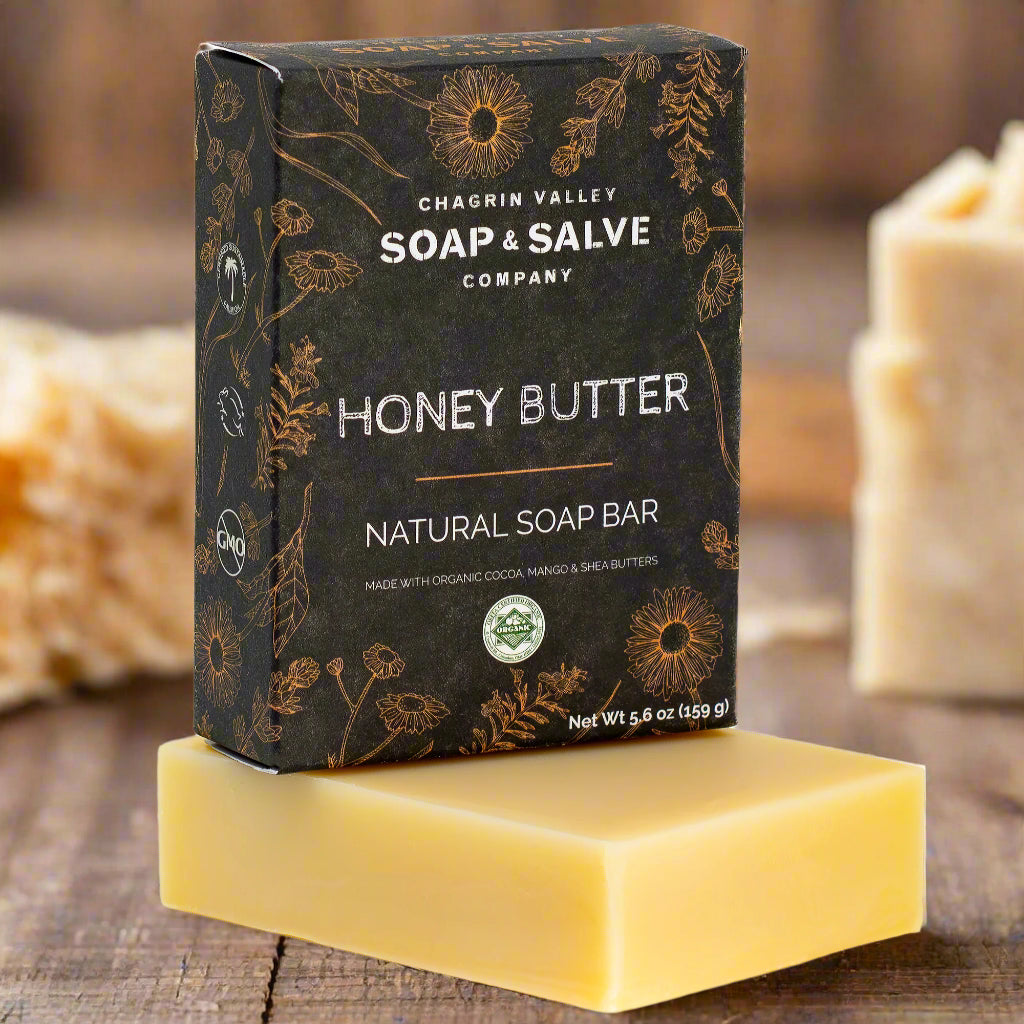
Natural Soap: Honey Butter
- Out Of Stock
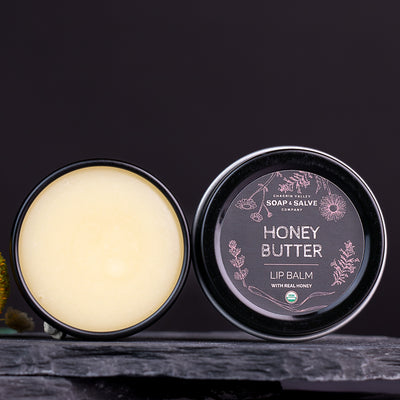
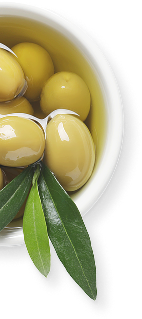
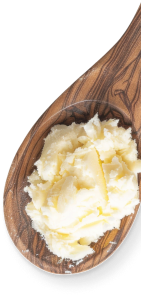
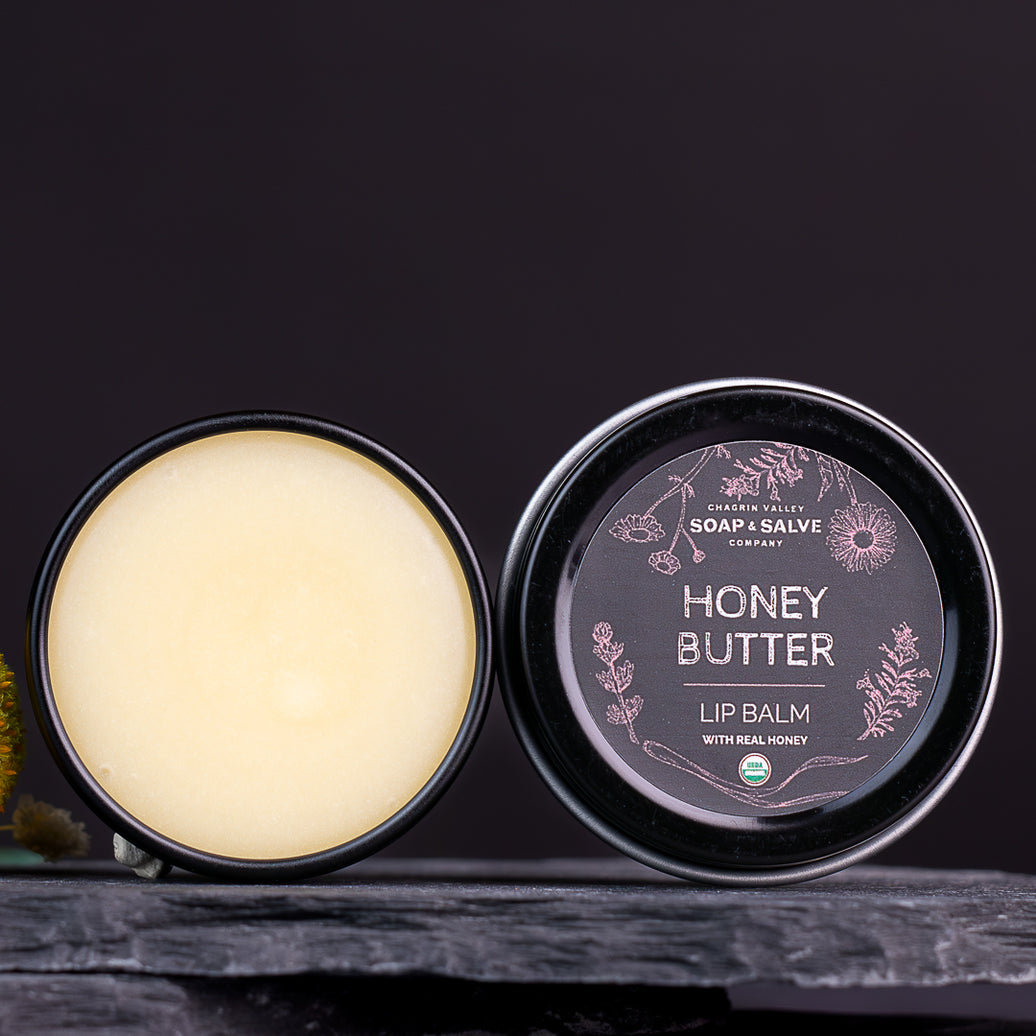
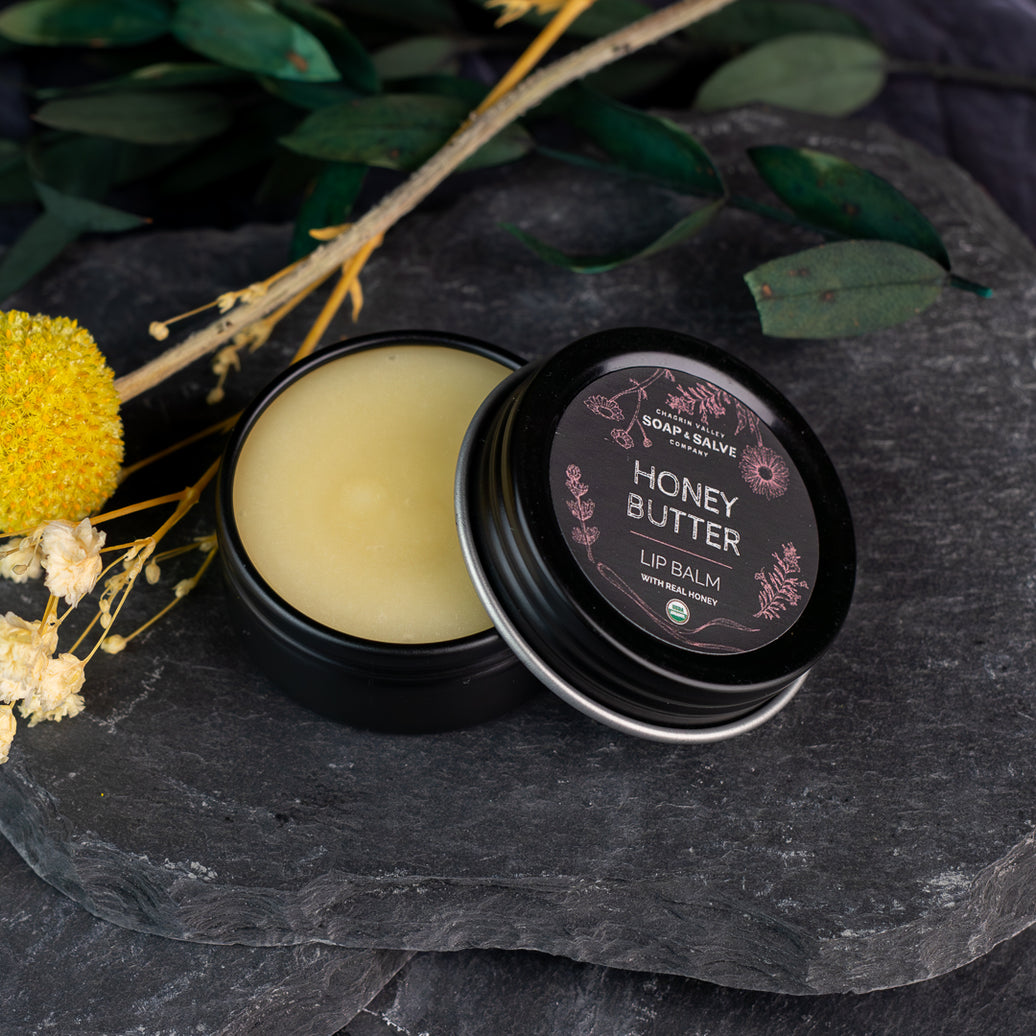
A creamy, buttery base of virgin coconut oil, cocoa butter, almond oil, and beeswax is infused with Honey, nature's ultimate beauty product, for soft and hydrated lips.





An organic lip balm formulated with moisturizing ingredients to provide long-lasting hydration and nourishment to dry, parched lips.
Known for its humectant properties, honey helps attract and retain moisture promoting a soft and pleasant lip texture and a well-conditioned appearance. Honey adds a touch of lingering sweetness and a bit of gloss for beautiful lips.
Sunflower oil, cocoa butter, virgin coconut oil, and almond oil are recognized for their skin-nourishing properties. The emollient nature of these botanical oils helps soothe and comfort lips that feel rough and dry and supports lip hydration and moisture retention which helps maintain suppleness.
What you put on your lips goes into your body. Our All Natural, Certified Organic, Cruelty-Free, Non-GMO lip balms are never made with any petroleum products, artificial colors, preservatives or synthetic fragrances or flavors.
Packaged in an infinitely recyclable portable metal tin.
Directions: Apply balm liberally to your lips as often as needed to keep lips soft and supple throughout the year. Particularly helpful during dry, cold weather conditions.
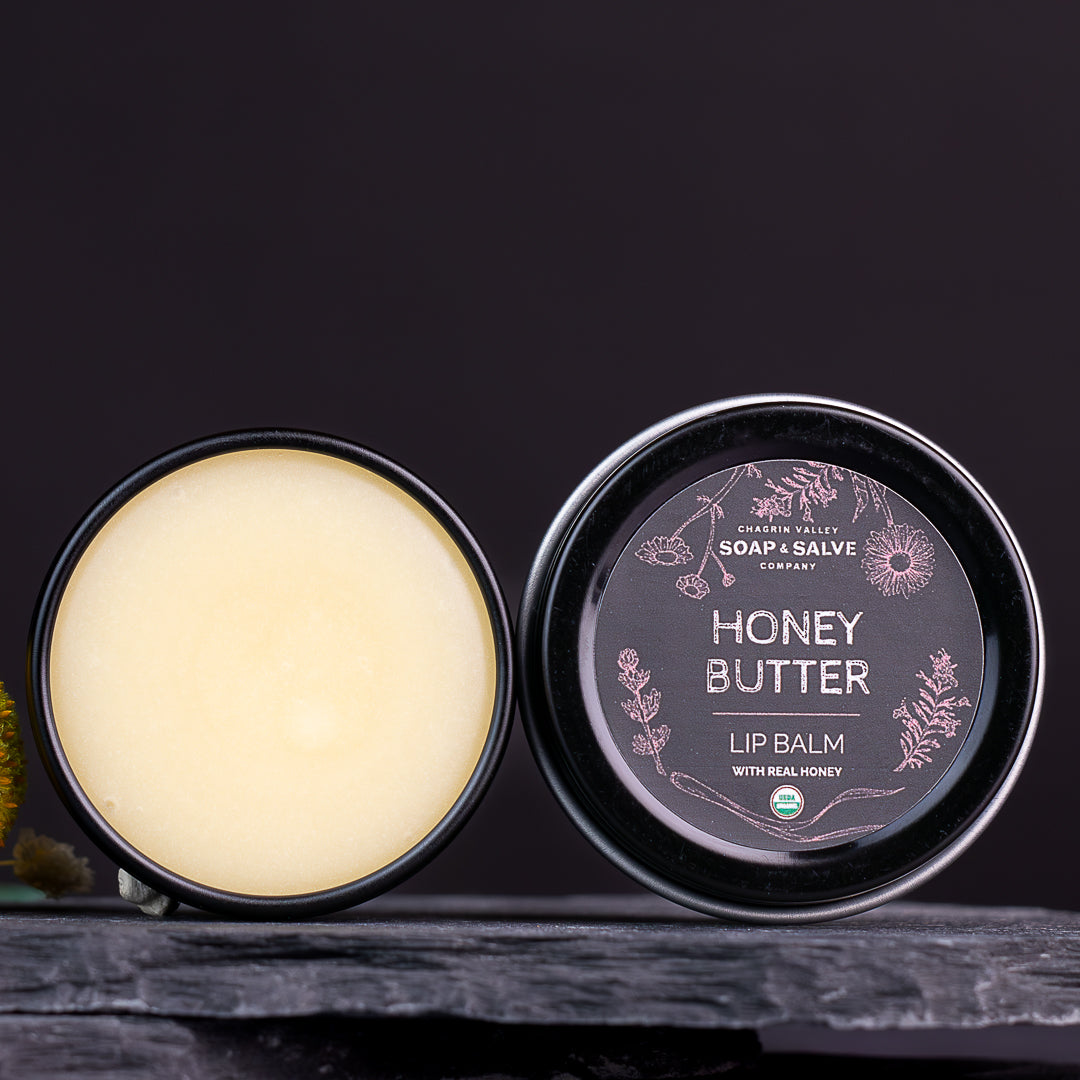
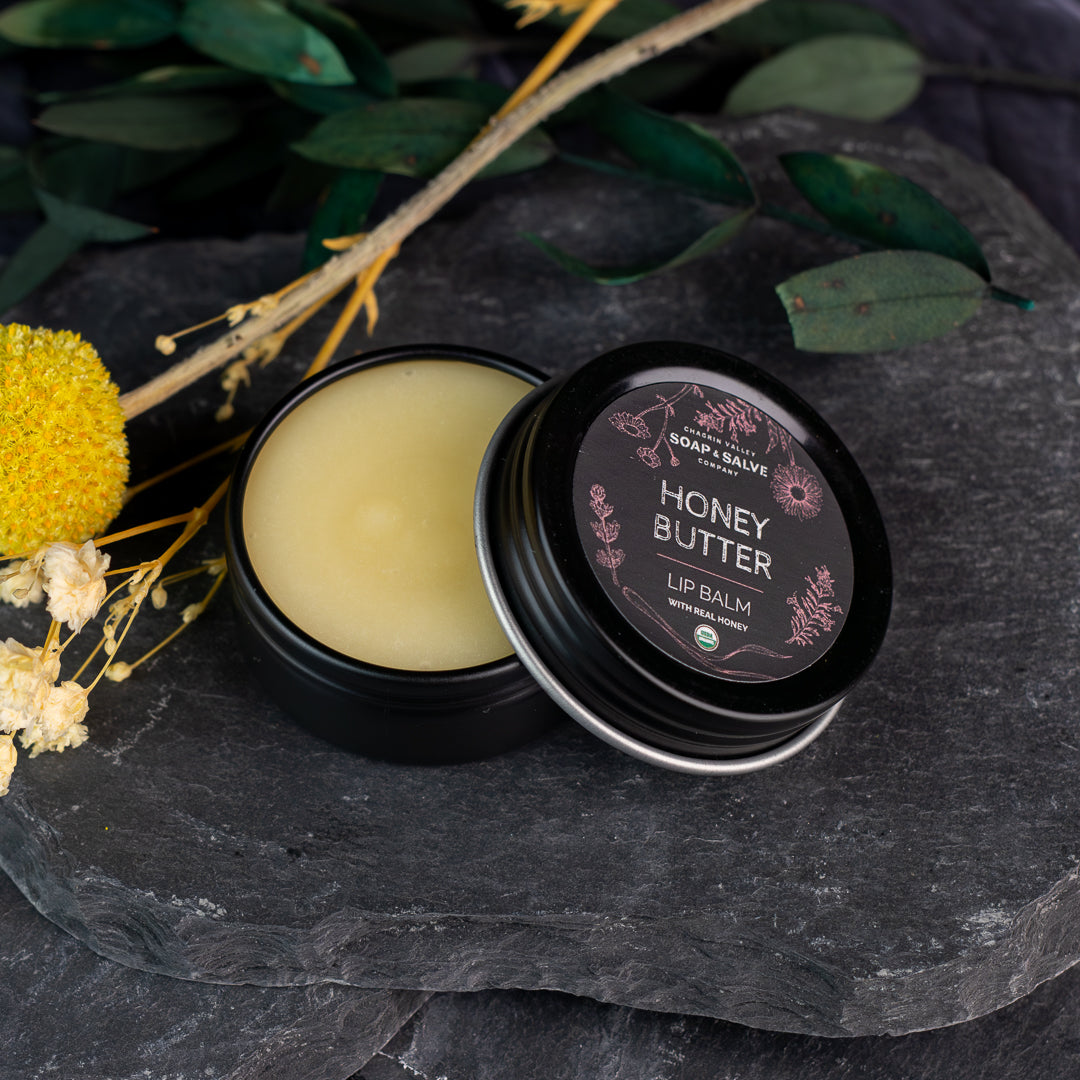
The goal is simple: to Harness the Power & Simplicity of Nature® to cleanse, soothe, heal, and protect your skin and hair!
Our unique formulas rely on moisturizing oils and butters, healing botanicals, and pure essential oils. We choose every ingredient with one end-result in mind….the BEST possible natural skin care for YOU!
 Organic Honey
Organic Honey
 Organic Cocoa Butter*
Organic Cocoa Butter*
 Organic Sweet Almond Oil
Organic Sweet Almond Oil
 We often receive questions as to whether our soaps, shampoos, and other natural products are safe to use during pregnancy.
We often receive questions as to whether our soaps, shampoos, and other natural products are safe to use during pregnancy.
We recommend that expectant and nursing mothers check with their midwife or physician before changing a skincare routine with our organic products, or any other line of products.
Read the label on a bar of commercial soap. Read the label on your jar of moisturizer.
Now read the ingredients in a Chagrin Valley product.
We use quality natural and USDA Certified Organic ingredients. No synthetic additives, colorants, fragrances, preservatives, or chemical derivatives are used.
There is nothing in our all-natural basic soap or other products that could cause a problem in pregnancy.
Topically applying the herbs present in many of our soaps is also not a problem. Your skin will absorb much less herb from the soap than if you would sprinkle them on your food.
The issue that seems to be of most concern is the use of essential oils during pregnancy.
There is a lot of confusing, ambiguous, and inaccurate information concerning the use of essential oils in pregnancy.
The question of safety and safety testing has a lot to do with several factors.
But also, aromatherapy and massage therapy use much higher concentrations of essential oils than you find in soap or even in eating the herb. With aromatherapy, you are inhaling the high concentrations which get absorbed via the lungs and in massage therapy, the essential oils remain on your skin and are absorbed.
Our scented soaps are gently scented with essential oils, but the choice is between you and your health care professional. The most critical time is the first trimester.
Just about every one of our products, like lip balms, whipped butters, soaps, shampoos, and deodorants has a "no added scent" version.
When there is a growing baby to consider, if you are at all uncertain as to the safety of an essential-oil containing product, or any ingredient, please consult your doctor, midwife, or health care professional!
When it comes to safety during pregnancy it is understandable that many massage therapists and aromatherapists decide to err on the side of caution in recommending the avoidance of certain essential oils.
Some Herbalists and Aromatherapist believe that essential oils that are normally safe to use, are safe during pregnancy, while others will recommend avoiding all essential oils during pregnancy.
Some essential oils that are normally quite safe have hormone-like effects and some even stimulate uterine muscles, both of which would be contraindicated during pregnancy.
Please do not ask us if one of our products is safe to use during pregnancy--we will simply refer you to this page.
We do not provide a list of essential oils considered safe during pregnancy because the information available is very contradictory. One aromatherapy source will list an essential oil as problematic while another one states it is fine.
The information is also changing constantly. Please do your own research and consult your doctor, midwife, or health care professional for the most up-to-date information.
Even if you have never had sensitive skin in the past, you may notice that a product you have been using for several years now irritates your skin.
The stretching belly is often the most sensitive spot. Other potential problem areas include the hips, thighs, and bottom where the skin may become dry and flaky.
Although the exact cause is not known, raging hormones do make you more sensitive to a wide range of things, and also your skin is thinning and stretching as you, and your baby, grow.
These changes can behave in unpredictable ways. For example, if you have eczema you may suffer from major flare-ups or complete remission during pregnancy.
Keep your body well moisturized and avoid products that contain synthetic additives, colorants, fragrances, or preservatives. Any of these can exacerbate sensitive skin problems.
Before trying a new product, you can always do a patch test to test for sensitivity.
And again, we recommend that expectant and nursing mothers check with their midwife or physician before changing a skincare routine with our products, or any other line of products.
Pregnancy & Children: We do not provide information on the safety of essential oils during Pregnancy or for use in Children because the available information is very ambiguous and often contradictory. If you’re interested in using essential oils during pregnancy or with young children please do your own research and consult your doctor, midwife, or health care professional before use.

We often receive questions as to whether our soaps, shampoos, and other items are safe to use on young children.
A baby’s skin, so thin and delicate, is no place for harmful synthetic chemicals.
Sadly, even some of the most trusted baby brands add nasty chemicals to their products.
Read the label on a bar of commercial baby soap or shampoo. Read the label on a bottle of commercial baby oil. Now read the ingredients in Chagrin Valley products.
We recommend starting with our Milk & Honey Baby Soap. We also recommend our two Castile soaps and Carrot & Honey Soap. They are unscented and, as with all of our products, contain no artificial ingredients!
My grandkids use our Milk & Honey bar as a baby shampoo--just keep the soap away from their eyes.
When you think your child is ready, try some new soaps.
As with all new products, it is best to do a skin patch test prior to full usage to test for any skin allergies or sensitivities. If you have any questions or concerns always check with your doctor or health care professional.
It is best to add only one new soap or product at a time and use it for a while before switching to a new soap.
Essential Oils & Children: We do not provide information on the safety of essential oils for use in Children because the available information is very ambiguous and often contradictory. If you are interested in using essential oils with young children please consult your health care professional before use.
Please do not ask us to diagnose your child's skin problems, we are not health care professionals. Our recommendations are based on what our customers have shared.
Click Here to visit our page of Organic Baby products!

The most important consideration in any business is its customers. Today's world of misleading claims, false advertising, and simple deception, often leaves consumers trying to discover the truth about personal products and their ingredients.
Some of my favorite products are made with ingredients that just do not exist as certified organic. Why? At this time there are no standards created for ingredients specifically used in the personal care product industry. Organic certification of personal care products is based on the organic food standards set by the National Organic Program of the USDA.
But since we are a certified organic company, we are required to submit documentation that even our "non-organic ingredients" were produced without the use of toxic pesticides, genetically modified organisms (GMOs), sewage sludge, or irradiation.

Why Did We Become a Certified Organic Company?
What Do All of the Organic Labels Mean?

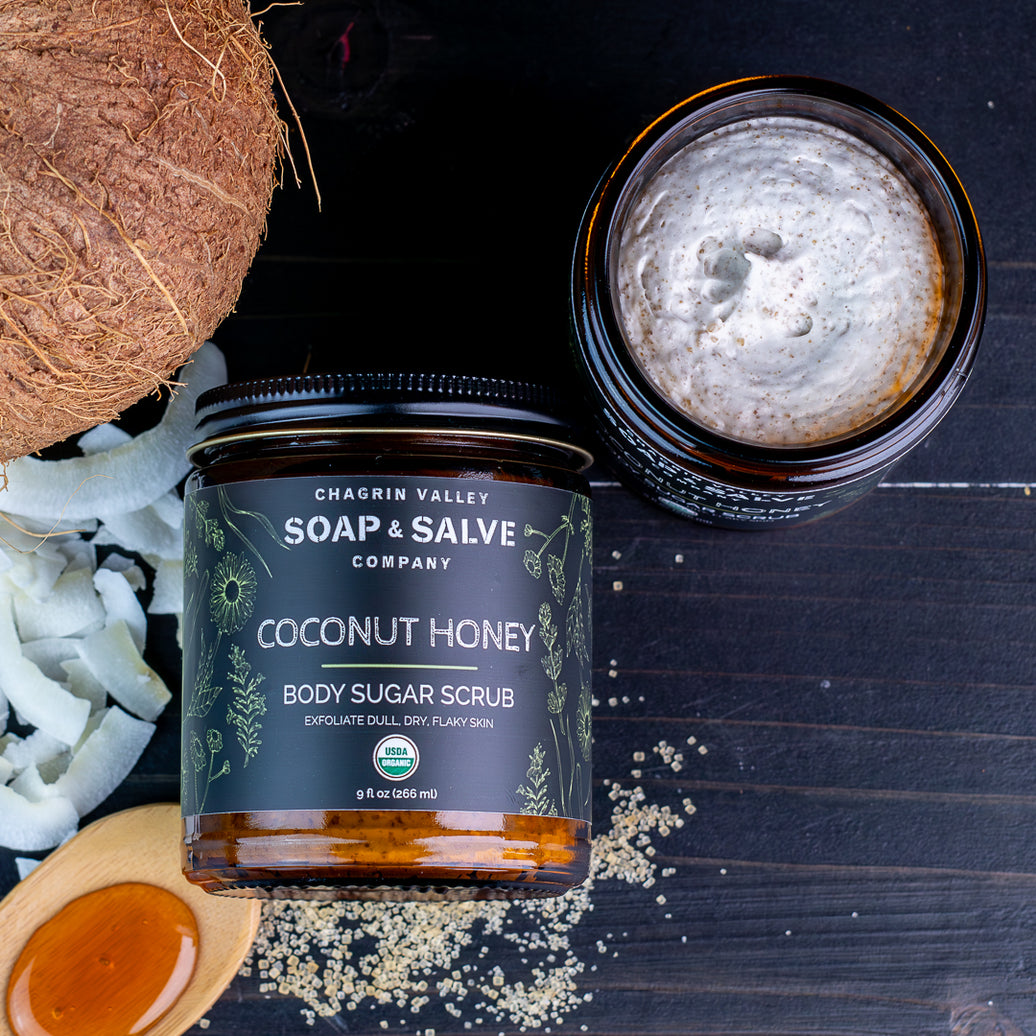
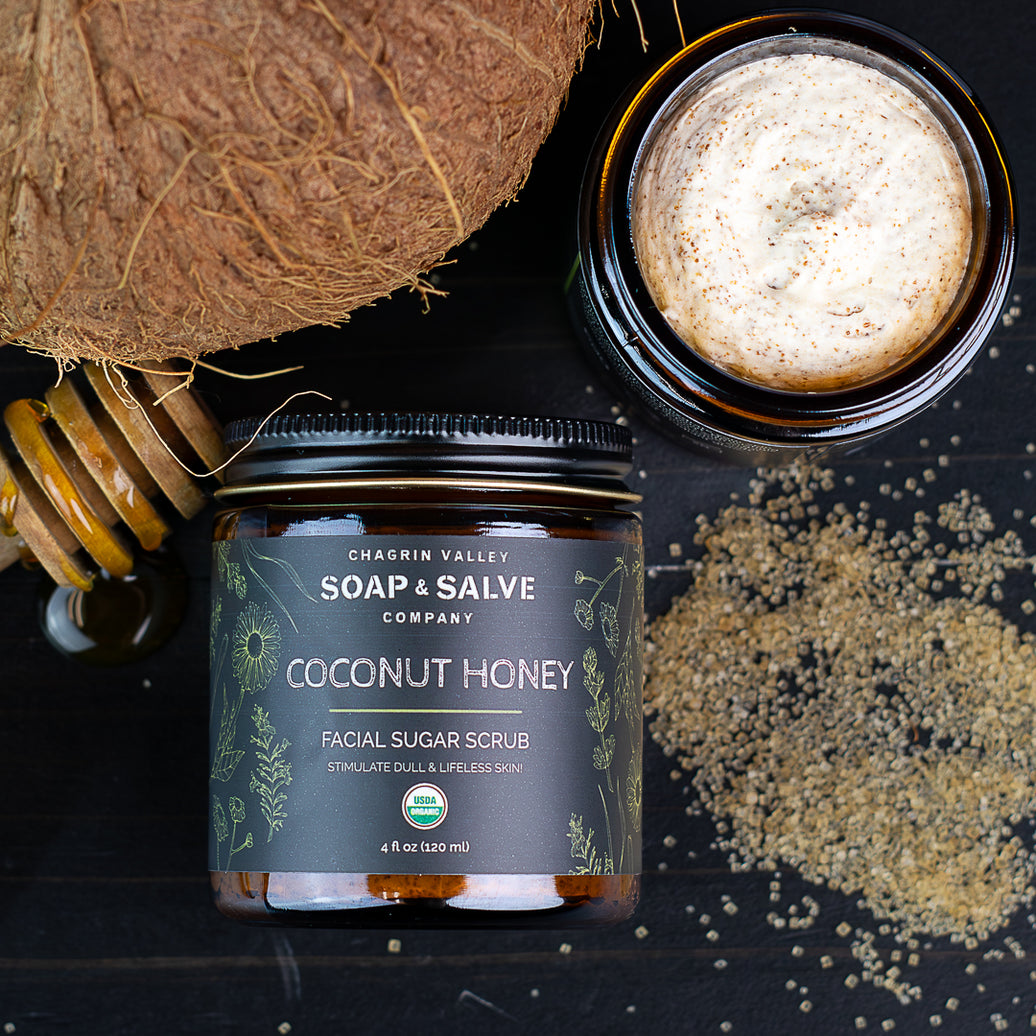
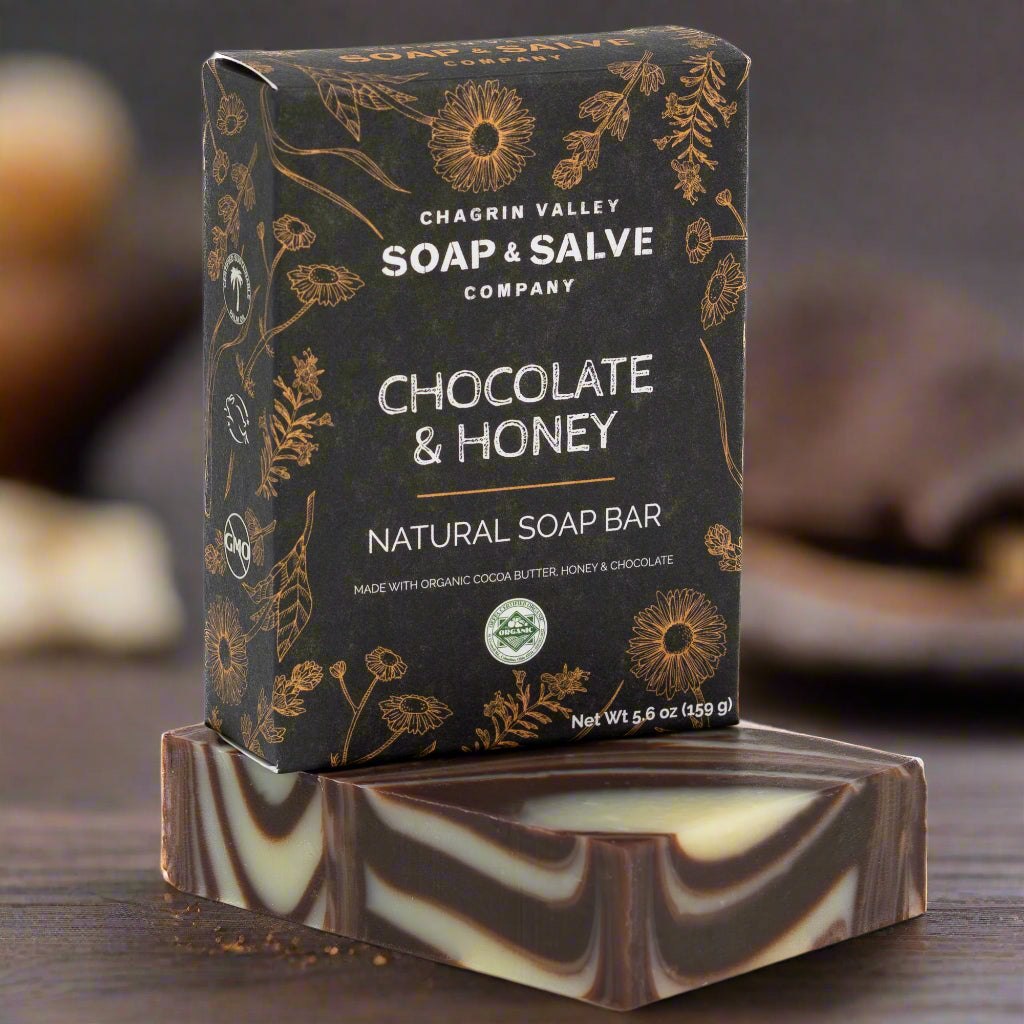
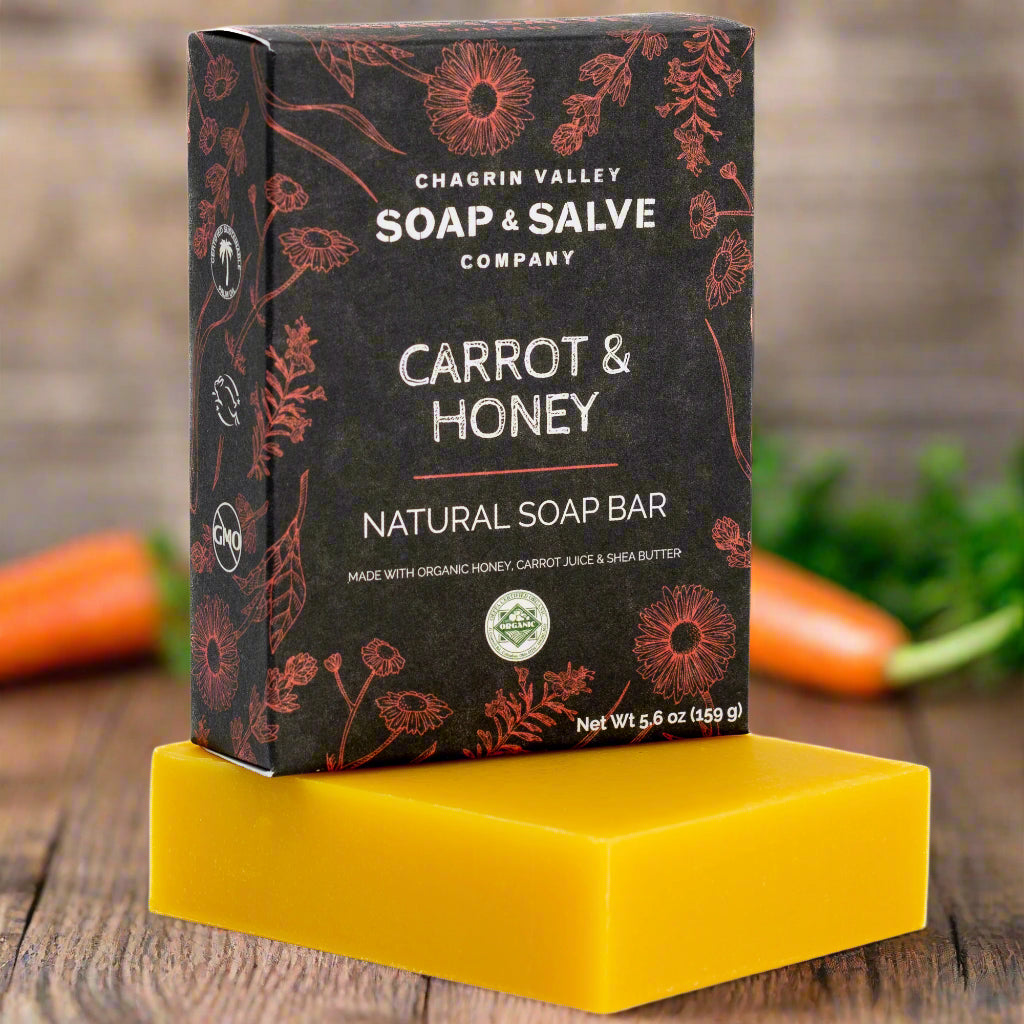
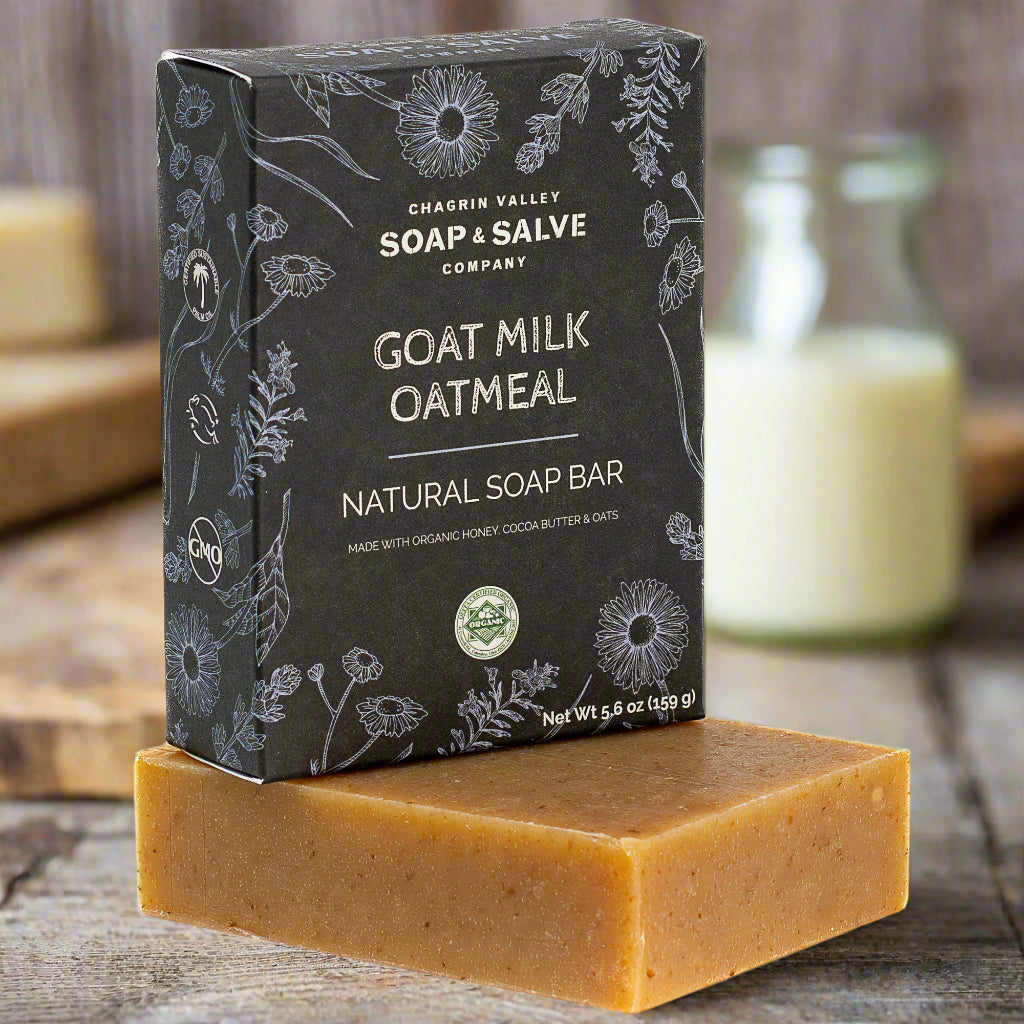
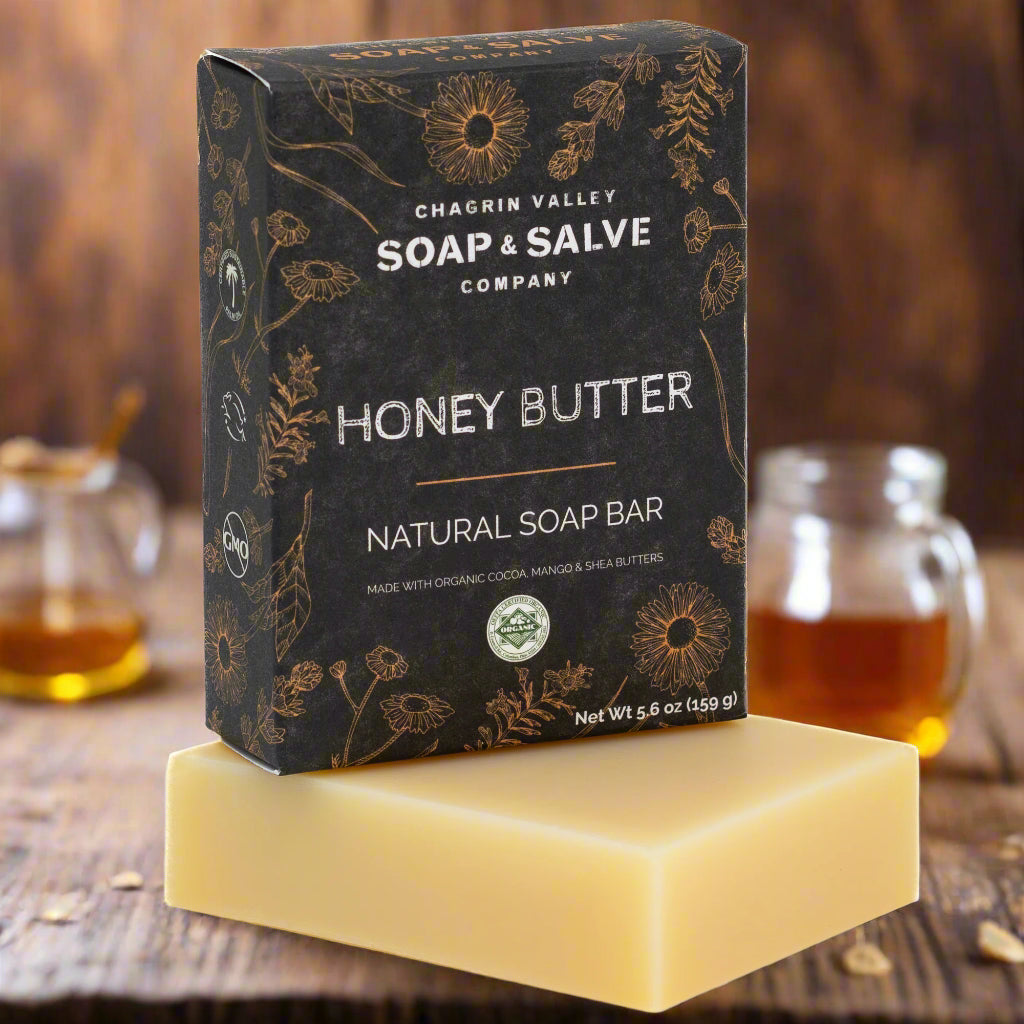
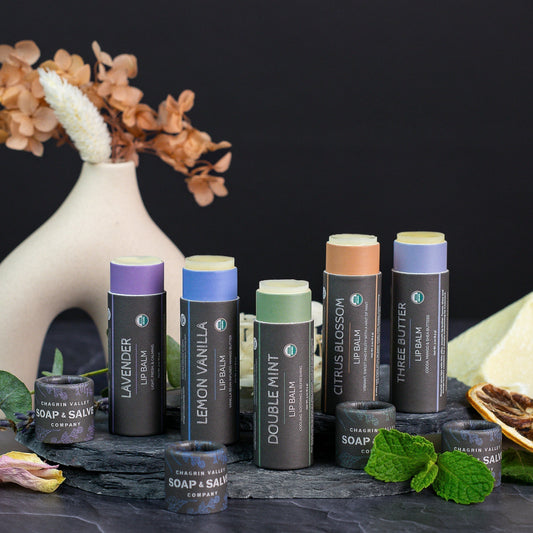
The skin on your lips is extra sensitive and needs a natural lip balm made with ingredients that moisturize, allow your skin to breathe, and penetrate the skin—not simply coat the skin’s surface.
Read Post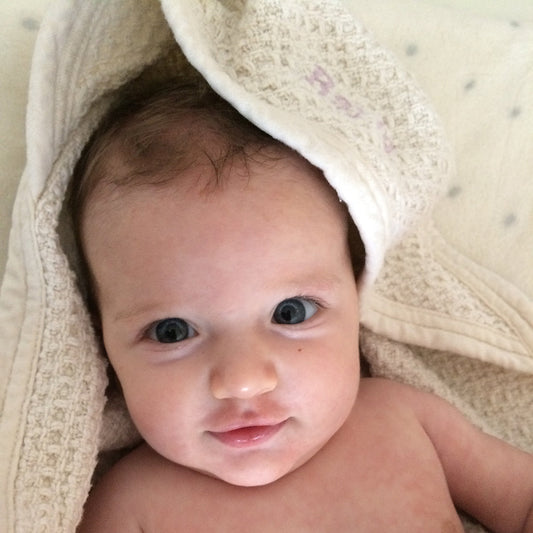
From the day we are born, our skin is our first line of defense against germs, water loss, outside heat and cold, and it helps regulate our body temperature. Your skin deserves organic skin care!
Read Post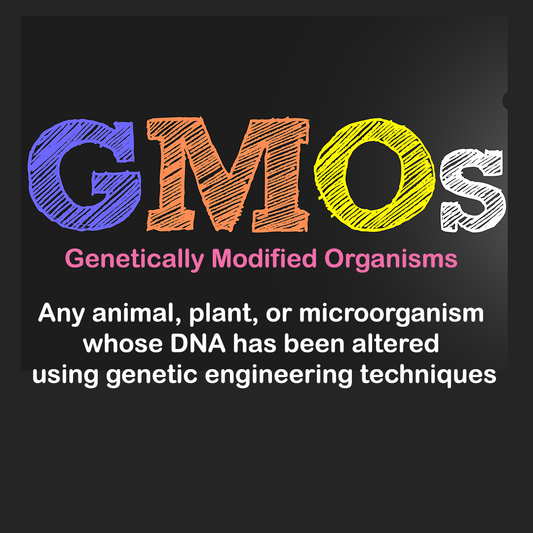
What is a GMO? How is genetic engineering different from traditional breeding? Why are GMOs a concern? Let’s explore.
Read Post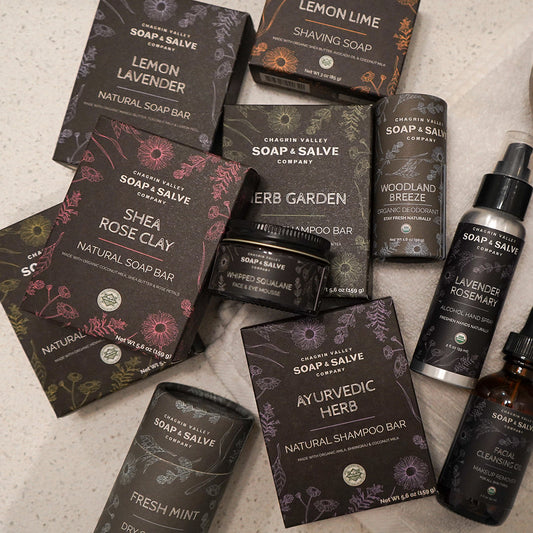
Discover why truly natural and organic skincare matters—for your skin, your health, and the planet. Learn how our USDA-certified products prioritize clean ingredients, sustainability, and transparency and what sets Chagrin Valley apart in a world of misleading beauty industry claims.
Read Post